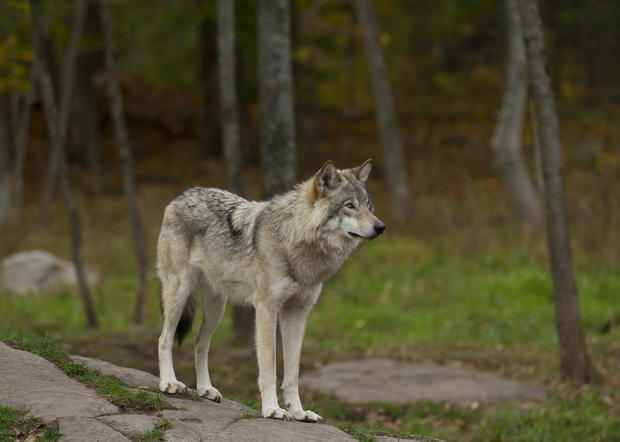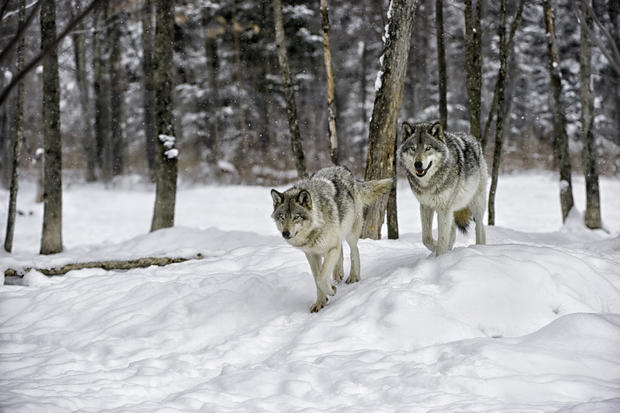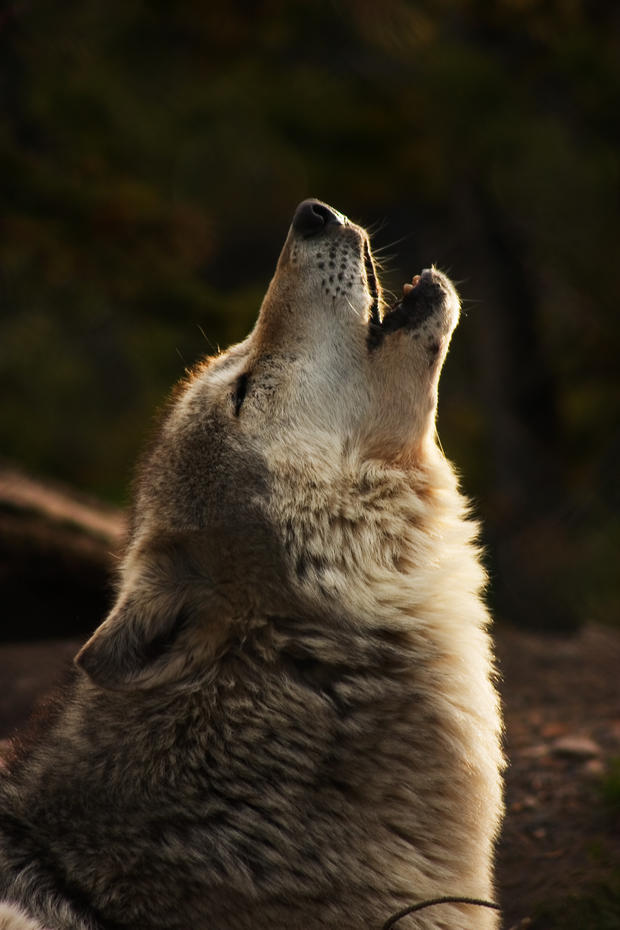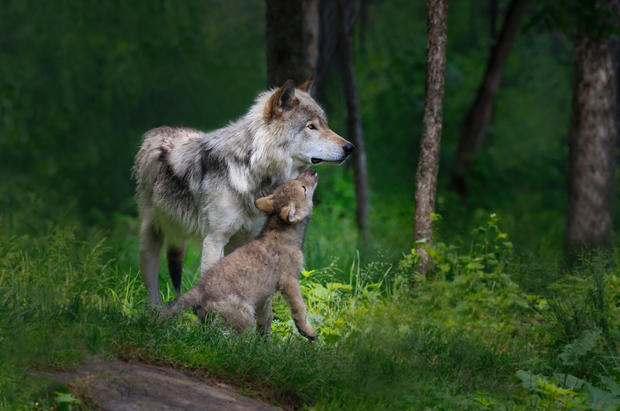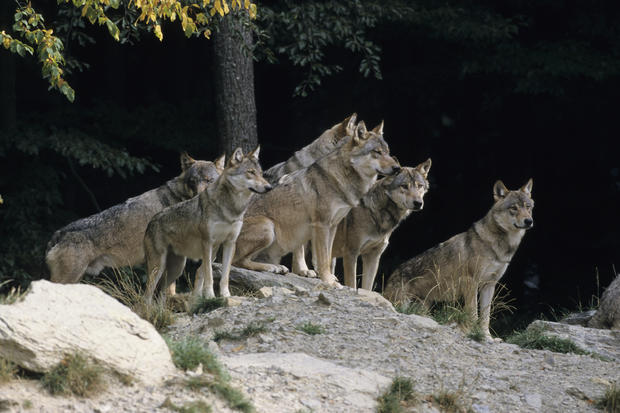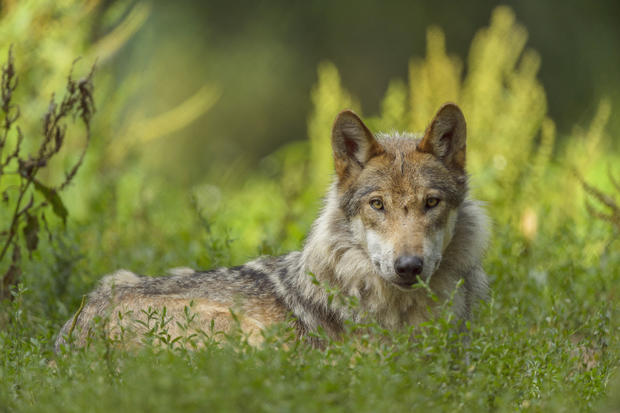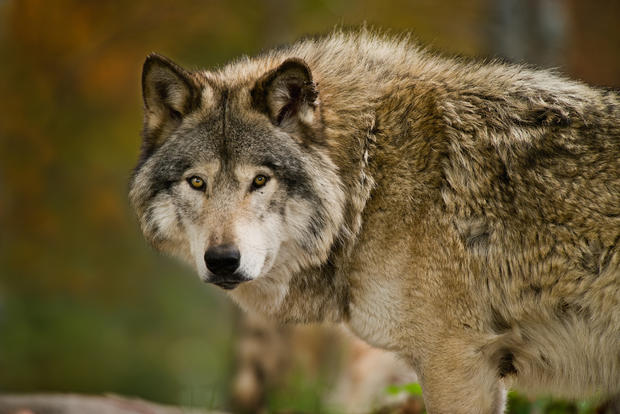Just After Getting Foothold In California, Gray Wolf Dropped From Endangered-Species List
(CNN) -- The Trump administration is dropping the gray wolf from the endangered species list under the assertion that the animal's population has sufficiently recovered, a move conservation groups decry as shortsighted and promise to challenge in court.
The move comes after the US Fish and Wildlife Service proposed last year to remove the gray wolf from being listed under the Endangered Species Act after the wolf population increased. According to the US Fish and Wildlife Service, there are more than 6,000 gray wolves in the US.
"Today's action reflects the Trump Administration's continued commitment to species conservation based on the parameters of the law and the best scientific and commercial data available," Interior Department Secretary David Bernhardt said in a statement Thursday.
Related: California's Gray Wolf Pack Grows To 14
"After more than 45 years as a listed species, the gray wolf has exceeded all conservation goals for recovery," he added. "Today's announcement simply reflects the determination that this species is neither a threatened nor endangered species based on the specific factors Congress has laid out in the law."
Gray wolves once prowled a northern range from coast to coast, but were nearly driven to extinction in the lower 48 states due to declines in their prey populations and frequent conflict with farmers and ranchers, whose livestock are an easy target for hungry wolves.
Their populations in the Great Lakes and Rocky Mountains have climbed back, but some states, like Wyoming in 2017, have already successfully sued to have the wolves delisted and some hunting of the animals has resumed.
CBS13 App: Click here to download the CBS13 News app for iOS and Android now.
Environmental groups slammed the gray wolf's removal from the endangered species list Thursday.
"Wolves are only starting to get a toehold in places like Northern California and the Pacific Northwest, and wolves need federal protection to explore habitat in the Southern Rockies and the Northeast," said Kristen Boyles, an attorney for Earthjustice.
"The delisting decision is what happens when bad science drives bad policy -- and it's illegal, so we will see them in court."
Defenders of Wildlife President and CEO Jamie Rappaport Clark said that "stripping protections for gray wolves is premature and reckless," vowing that the group "will be taking the US Fish and Wildlife Service to court to defend this iconic species."
More from CBS Sacramento:
- Stimulus Package Update: Why Testing Language Is Holding Up 2nd Checks
- Sacramento Downtown Businesses Complain Of 'Severe And Worsening Conditions'
- Sutter County Neighbors Complain About Smell Coming From Industrial Hemp Farm
Some attributed the move to a last-ditch effort to woo voters in the areas where the wolves live before the election, as polling shows President Donald Trump trailing Democratic nominee Joe Biden.
"Wolves will be shot and killed because Donald Trump is desperate to gin up his voters in the Midwest," said Brett Hartl, chief political strategist at the Center for Biological Diversity Action Fund, in a statement. "Secretary Bernhardt's nakedly political theater announcing the end to wolf protections in a battleground state days before the election shows just how corrupt and self-serving the Trump administration is."
Since it was passed 47 years ago, the Endangered Species Act has protected thousands of plants and animals that humans have pushed from their habitats and driven close to extinction. The Interior Department moved to weaken the ESA in 2018, part of the administration's sweeping rollback of what some view as burdensome regulatory red tape.
The overhaul changed how the Fish and Wildlife Service and National Oceanic and Atmospheric Administration consider whether species qualify for protections, as well as how the agencies determine what habitats deserve special protections. It could significantly lengthen how long it takes for a species to become protected, which could further endanger them, but the Trump administration says it allows the focus to be on the "rarest species."
The-CNN-Wire
™ & © 2020 Cable News Network, Inc., a WarnerMedia Company. All rights reserved.
